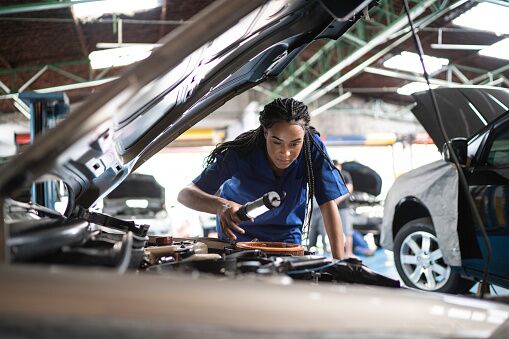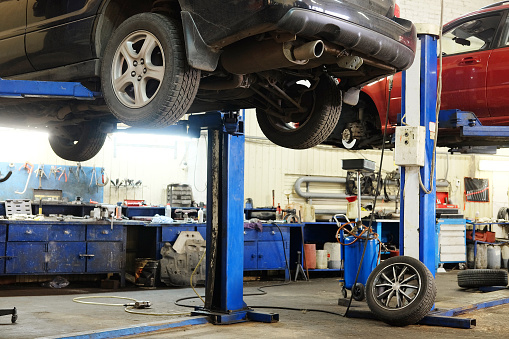All Categories
Featured
Your auto is an essential part of your every day life, and taking great care of it guarantees that it serves you accurately for many years to come. While modern-day lorries are created to be sturdy, overlooking correct upkeep can lead to unneeded failures and costly repairs. Right here's exactly how you can maintain your cars and truck running longer and in peak condition.
- Comply With Routine Maintenance. The structure of a durable automobile is routine upkeep. Follow your supplier's suggested maintenance schedule, which can typically be discovered in your vehicle's proprietor's manual. Regular tasks like oil modifications, tire turnings, and brake checks protect against deterioration and keep your car doing optimally.
Overlooking oil changes is just one of the quickest means to damage your engine. Tidy oil makes sure appropriate lubrication and avoids getting too hot. Depending on your car and driving habits, oil changes are normally needed every 3,000 to 5,000 miles or as defined by the supplier.
- Check and Renew Fluids. Your car depends on a number of liquids to run efficiently. These consist of engine oil, transmission fluid, coolant, brake fluid, and power steering fluid. Reduced or dirty liquids can lead to engine getting too hot, sliding gears, and brake failure.
Make it a behavior to inspect liquid levels routinely. If you discover a considerable decrease in fluid levels, it may suggest a leak that requires instant attention. Keeping fluids tidy and at the best levels ensures your vehicle runs effectively and stops pricey fixings.
- Watch on Your Tires. Tire upkeep is important for both safety and performance. Improperly inflated tires can minimize gas efficiency, trigger unequal wear, and boost the risk of blowouts. Examine your tire pressure regular monthly and ensure it matches the maker's recommendations.
Rotating your tires every 5,000 to 7,500 miles promotes also wear and extends their life-span. In addition, inspect your tires for any indicators of damages, such as cuts, bulges, or low step deepness, and change them when essential.
- Change Worn Components in a timely manner. Disregarding worn-out parts can lead to bigger issues down the road. Falling short to replace a used timing belt can result in engine failure. In a similar way, used brake pads can damage blades, leading to costly repair work.
Be positive concerning changing parts such as stimulate plugs, filters, and belts according to the producer's standards. Utilizing high-quality substitute parts guarantees far better performance and long life.
- Practice Gentle Driving. The means you drive dramatically impacts the life expectancy of your automobile. Aggressive driving routines, such as fast acceleration, abrupt stopping, and tough cornering, put additional tension on the engine, brakes, and tires.
Rather, adopt smooth driving methods. Accelerate slowly, keep a consistent speed, and brake carefully whenever feasible. This reduces deterioration on your automobile's parts and enhances gas effectiveness.

- Secure Your Automobile's Exterior. Maintaining your auto tidy isn't almost looks-- it has to do with stopping damages. Dust, road salt, and grime can trigger rust and corrosion, particularly in the undercarriage. Normal washing, particularly throughout winter or after driving on salted roadways, is crucial.
Waxing your automobile every few months supplies a safety layer against ecological damages. Additionally, park your car in a garage or use a cars and truck cover to shield it from rough weather and UV rays, which can discolor the paint and damage the interior.
- Do Not Disregard Caution Indicators. Control panel warning lights are your vehicle's means of informing you something requires focus. Whether it's the check engine light, low oil stress, or tire stress caution, dealing with these signals promptly can prevent minor issues from ending up being significant repair services.
If you notice unusual sounds, vibrations, or adjustments in your cars and truck's performance, don't overlook them. A specialist technician can diagnose and deal with the trouble prior to it escalates.
- Store Your Automobile Properly. If you're not using your auto for a prolonged duration, appropriate storage space is essential. Keep your automobile in a cool, completely dry area to secure it from climate damages. Utilize a battery tender to preserve the battery fee and include a gas stabilizer to avoid the gas from deteriorating.

Beginning the auto periodically or taking it for a short drive can maintain all systems in functioning order and stop components from confiscating up.
Conclusion: Consistency Is Key. Keeping your cars and truck running much longer does not call for complicated measures-- just uniformity and interest to information. Treat your cars and truck with treatment, and it will reward you with integrity, better performance, and years of dependable solution.
Latest Posts
Protect Your Home with Top Quality Residential Roofing
Don’t Miss Special Auto Repair Offers in Chicago at Montclare Auto Repair
Find Brake Repair & More: Comprehensive Services Guide from Montclare Auto Repair
More
Latest Posts
Protect Your Home with Top Quality Residential Roofing
Don’t Miss Special Auto Repair Offers in Chicago at Montclare Auto Repair
Find Brake Repair & More: Comprehensive Services Guide from Montclare Auto Repair
